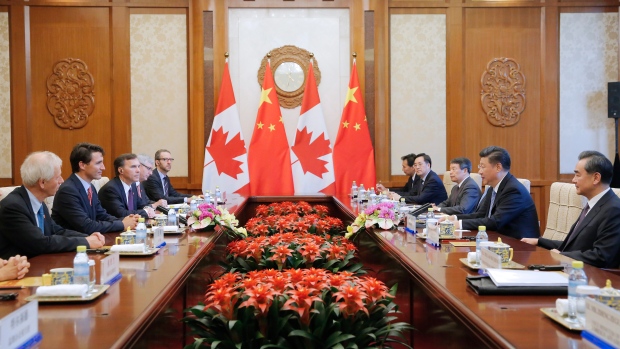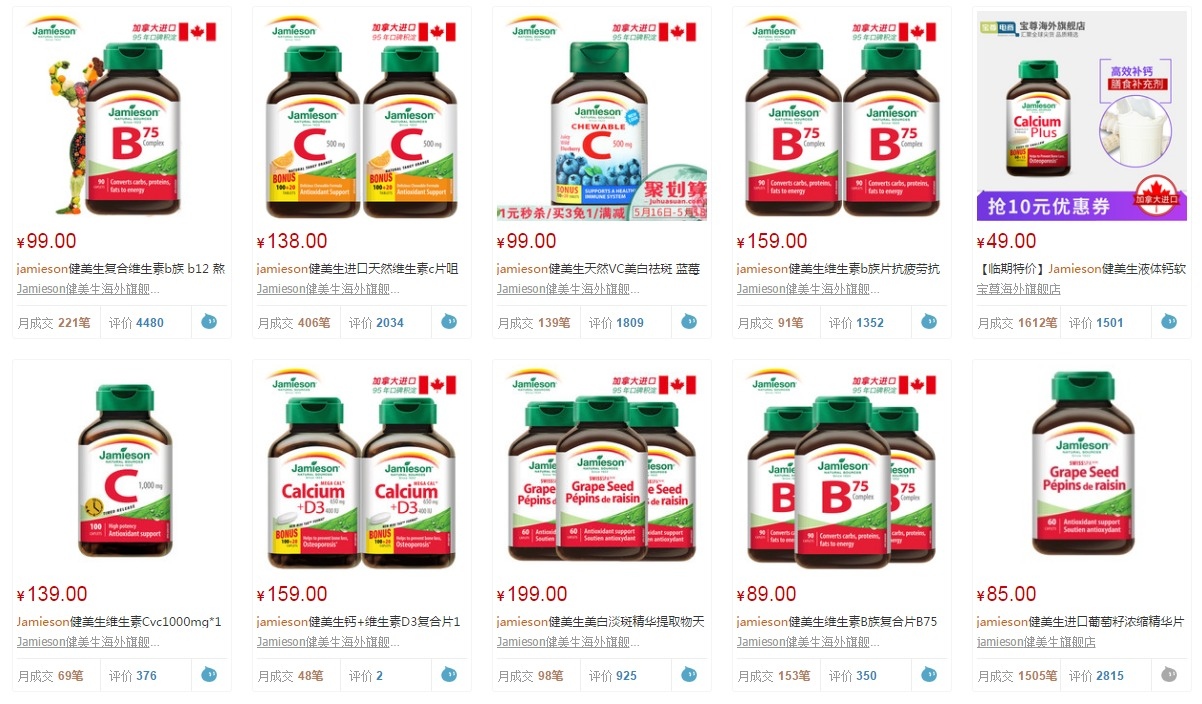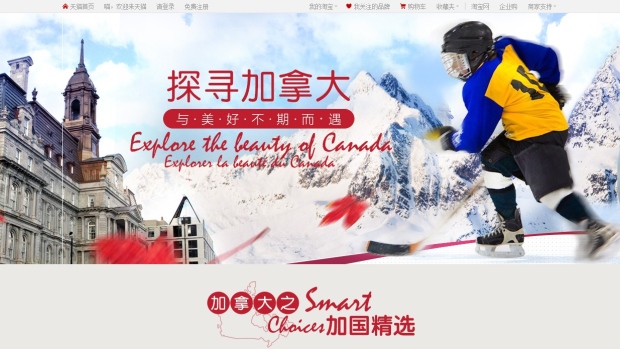May 18, 2017
Alibaba plans 'significant push' to help Canadian businesses crack China

When Justin Trudeau touched down in China last September, it was seen as crucial opportunity to improve trade ties with the world's second-largest economy. The prime minister said progress during that first official visit would lead to “a more stable and beneficial relationship between Canada and China.”
One of the signature moments during that trade mission came when Trudeau teamed up with Alibaba CEO Jack Ma to announce a new portal on one of the e-commerce giant's websites that was designed to promote Canadian goods. “Today is a very good day for Canadian businesses,” Trudeau said in a press statement at the time. “They now have a permanent e-home on the world's biggest online shopping site - Alibaba - and with it, the ability to reach over 400 million Chinese consumers.”
But eight months later, there's little to show for all the glitz that came with that announcement.
BNN reached out to more than a dozen companies whose products can be found on the Alibaba Canada Pavilion hub on Alibaba’s e-commerce platform, Tmall. The hub features items from companies including Aldo, Roots, and Arcteryx. Those who did respond provided limited information on their progress.
“I have been looking into this, and unfortunately we don’t have any financials that we can share,” Jamieson Laboratories spokesperson Ruth Winker told BNN in an email. Jamieson, which manufactures and distributes natural vitamins and supplements, is featured prominently on the Tmall hub.

B.C.-based food and beverage manufacturer Sun-Rype, which is controlled by The Jim Pattison Group, was slightly more forthcoming. “The Canadian Pavilion has helped us to establish the Sun-Rype brand as an authentic Canadian brand,” Barb Brodeur, a spokesperson for Sun-Rype, told BNN in an email. She noted the company’s Fruit to Go snacks and juices have been popular items.
Chantal Gagnon, a spokesperson for International Trade Minister François-Philippe Champagne, did not immediately offer comment on the Alibaba partnership’s progress.
“I suspect that any challenges that Alibaba is having in developing Canadian clients relates to the cultural challenges that face North American companies, especially smaller ones, in entering new markets,” Geoffrey Hale, a professor of political science at the University of Lethbridge, told BNN in an email.
Alibaba, which reported sales surged 60 per cent year-over-year in its latest quarter on Thursday , has seen its market capitalization grow to more than US$300 billion. CEO Jack Ma is eager to grow the company’s footprint in North America. In January, he met with U.S. President Donald Trump, pledging to create 1 million new U.S. jobs. Ma will host a conference in Detroit next month to teach small business owners how to sell to Chinese consumers. Ma also chairs the China Entrepreneur Club, a group of Chinese business tycoons who visited Canada last year to meet with political and business leaders.
“We are going to have some news soon about expansion into Canada, but this will come later this summer,” Alibaba Spokesperson Bob Christie told BNN in an email. “In essence, you will see that we will have a significant push for Canadian businesses to help them get into China. It will be something along the lines of what we are seeing in the U.S. now.”
Some of the companies whose products are featured on Tmall’s Alibaba Canada Pavilion suggested their success in China was not dependent on the hub due to their existing Chinese operations.
“Our maple syrup is already available in various market segments in China,” Martin Bernard of Quebec-based Bernard & Sons Ltd., told BNN in an email. Bernard’s Old Fashioned Maple Crest product is one of the maple syrups for sale on Tmall. Brodeur told BNN the company’s products have been sold on Alibaba for more than three years. “Sun-Rype is also sold on a variety of Alibaba e-commerce platforms beyond just Tmall Global,” Brodeur noted in her email.

The main page of the Canada Pavilion features the headline “Explore the beauty of Canada,” against a Canadian-inspired backdrop, featuring a hockey player and polar bears. “From a North American eye, the site is pedestrian at best,” advertising executive John Yorke, president of Toronto-based Rain43, told BNN in an email. “It pales in comparison to the Amazon brand.”
“That being said, if you have seen Alibaba or other Asian-based trading sites, it is right in tow with that look and feel and, importantly, functionality. This is not the branding that I would expect from Canada, but that doesn’t mean it is not effective,” said Yorke.
Tmall’s Canada Pavilion also appears to feature products produced by American companies. Similac’s Go & Gro baby formula, for example, is featured on Tmall. Similac’s parent company, Abbott Labs, is headquartered in Lake Bluff, Illinois. One baby toy featured on Tmall is manufactured by the Manhattan Toy Company, which was founded by the grandson of Hollywood studio mogul Samuel Goldwyn. The company is currently based in Minneapolis, Minnesota.
Tmall also features a line of synthetic motor oil made by Petro-Canada. While the product line was previously owned by Suncor, the current owner is an American firm. Suncor sold its Petro-Canada lubricants unit to Dallas-based HollyFrontier last year. “You would need to connect with HollyFrontier in regards to an update on the partnership,” Suncor Spokesperson Nicole Fisher told BNN in an email.
